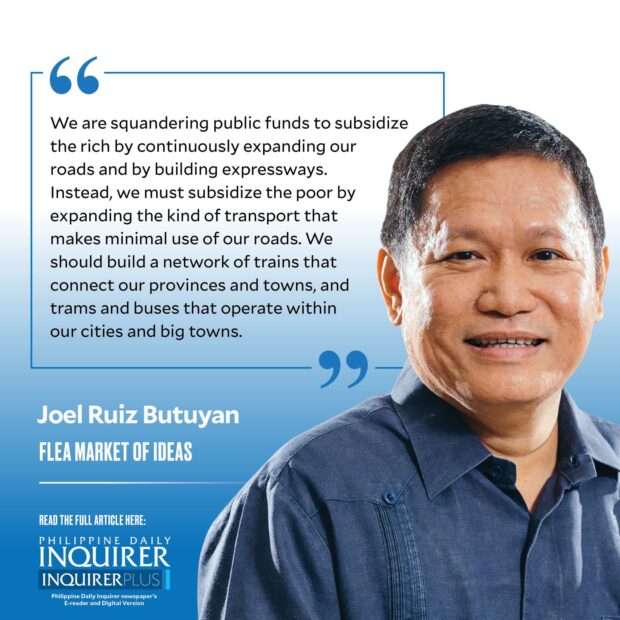Trains are the way to go
One of the noticeable advantages that make life so much better in developed countries is their very efficient public transportation system. I went to Europe last week for work and a few days of leisure, and it gave me the opportunity to travel within and between some of its cities through trains, trams, and buses. And what an experience it was that elicited both envy and rumination on why our leaders have not embarked on having the same kind of transportation convenience for our country.
With the many conferences and meetings they attend abroad, our leaders should notice the efficient public transport network enjoyed by first world countries. Why then is there no effort, or even just an expression of yearning, to have the same kind of public convenience for our country?
In particular, the extensive city trams of Europe are an eye-opener. The tram tracks are imbedded on normal roads, so they don’t obstruct road access by cars, and they’re not as expensive to construct like our elevated Light Rail Transit and Manila Metro Rail Transit System lines. Their trains, trams, and buses have stations that complement each other, allowing an easy transfer from one to the other. These European public transports run and stop at every station even with few or no passengers, enabling each transport vehicle to arrive in and depart from every station on exact schedule.
One key difference in our country’s third world concept of public transport is that we view our trains and buses as business ventures that should churn out profits and not be subsidized by taxes. In first world countries, the business viability of their trains, trams, and buses is apparently not an issue. They’re not shy to subsidize their public transport with tax money because they’re treated and operated as public service.
What our country considers as public service are the construction and maintenance of our roads. We spend so much taxpayer’s money expanding our roads into four- or eight-lane highways and constructing bypass roads around our towns and cities. We incur so much public debt or enslave our people to big businesses which build expressways. We allocate so much of our yearly budget for road repairs.
But our roads are principally utilized by private vehicles which are the means of transport of the rich. Public transport vehicles are minority users of our roads. Essentially, therefore, our country’s transportation policy fully subsidizes with taxpayer’s money the private transportation of the wealthy. By having a road-centric transportation policy, we have the poor subsidizing the rich.
We are squandering public funds to subsidize the rich by continuously expanding our roads and by building expressways. Instead, we must subsidize the poor by expanding the kind of transport that makes minimal use of our roads. We should build a network of trains that connect our provinces and towns, and trams and buses that operate within our cities and big towns.
It’s true that it will take gazillion pesos to build a network of trains, trams, and public buses all over our country. But we should shift our policy toward this direction, and stop squandering public money on endless road expansions that require expensive and corruption-prone yearly repairs. We should start devoting public funds by constructing, segment by segment, a public transport system that has proven effective in developed countries.
First, the national government should create a master plan of a train-tram-bus network for the entire country. Second, our government should implement the master plan, phase by phase, by either contracting debt to finance each project segment, or by engaging businesspersons in build-operate-transfer or public-private partnership (PPP) ventures. Third, provinces and cities should be allowed to take on the construction of the transport segment within their territorial jurisdiction, with national government supervision. Our local government units can do so by availing of any of the financing schemes resorted to by the national government.
Trains can transport not only passengers, but all sorts of cargo all over the country. Our train tracks should have lines that connect to our seaports in order to enable the cheap transport of our products to our piers where they can then be loaded on vessels for export abroad. In a recent meeting I had with a client who supplies Vietnamese products in our country, he lamented that our products are pricey because they’re expensively transported by trucks. In contrast, Vietnam and Thailand transport their products via cargo trains that can go all the way to their seaports.
An extensive public transportation system consisting of a network of trains, trams, and buses will go a long way in solving our problems on traffic, pollution, expensive cargo transport, and corruption-laden road constructions. Trains are the proven way to go.
—————-
Comments to fleamarketofideas@gmail.com





















